NuWater delivers fast, decentralised water treatment systems for resilient, scalable solutions to South Africa’s growing water challenges.
In South Africa, there is a growing demand for decentralised water and wastewater treatment plants as the country grapples with increasing pressure on water security. NuWater, a Cape Town based original equipment manufacturer and turnkey purification specialist is at the forefront of this shift.
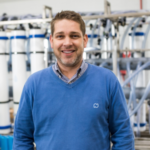
Billy James, managing executive, NuWater.
“Both businesses and residents are looking at creating their own water sovereignty. Most of South Africa’s water and wastewater treatment plants were built decades ago and have not been adequately maintained or upgraded to meet rising demand or increased levels of industrial and sewage pollutants in water,” states Billy James, managing executive, NuWater.
With over 150 reference sites in South Africa, Mexico, Singapore and other parts of South East Asia, NuWater is a technology-led engineering company that designs, builds, finances, operates and maintains water treatment plants.
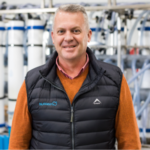
James Morisse, business development manager, NuWater.
“Conventional treatment plants are no longer equipped to effectively remove new pharmaceutical residues and toxic chemicals found in our water and wastewater – but our advanced, technology-driven solutions are designed to do just that. While conventional, centralised treatment plants are designed to treat water and wastewater quality with a narrow set of parameters, our systems are far more flexible,” explains James Morisse, business development manager, NuWater.
This level of innovation is particularly crucial as many new estates and developments are facing significant challenges in managing their wastewater, as nearby municipal infrastructure is either non-existent, already operating at full capacity, or too far away to connect economically. In many cases, there is simply nowhere for these developments to send their wastewater, creating a pressing need for onsite or decentralised treatment solutions.
A major advantage of decentralised treatment plants is their rapid deployment – they can be commissioned within a few weeks, compared to the years it often takes for traditional centralised plants.
Assessing needs, delivering solutions
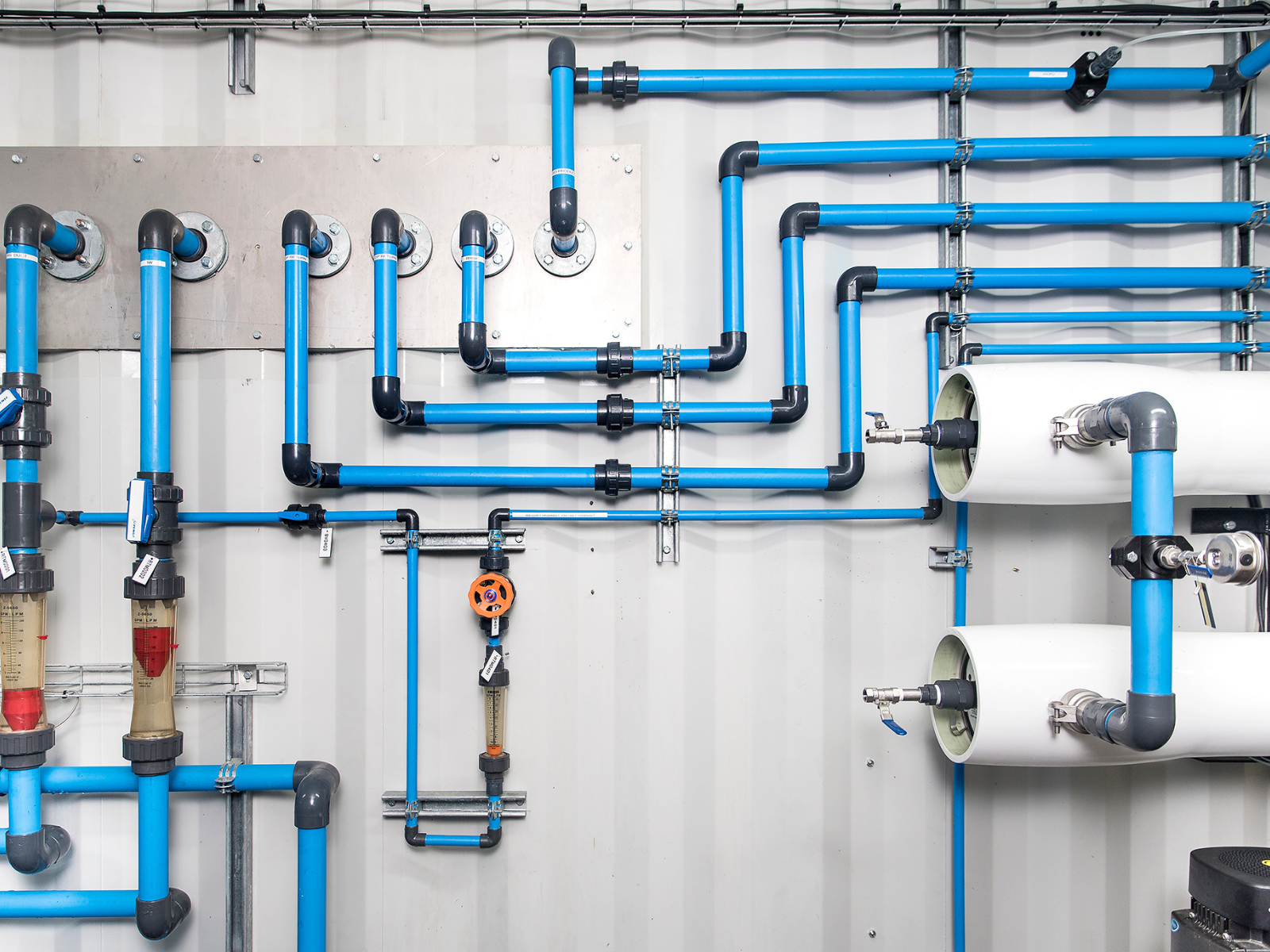
“Typically, by the time a customer approaches NuWater, they are already facing a problem – either they have no access to water, insufficient supply, or their water is contaminated. If an analysis hasn’t already been done, NuWater conducts a site visit to assess the water chemistry and determine the exact volumes that need to be treated and the level of water treatment. The site’s layout, geography, and available space are carefully assessed, along with how to design a plant that is easily accessible for maintenance and servicing. From that point onwards, we provide an estimated scope and cost of the solution,” says Billy James.
This is important, as some solutions can be costly. Providing a rough upfront estimate allows the client to quickly determine whether the solution is viable. If it is, NuWater will then proceed with detailed engineering and design work. From there, the plant will be built, installed, and commissioned. This is normally done within eight to 12 weeks. However, they have delivered very complex plants within six weeks.
NuWater may operate the plant for a short period, followed by training and a formal handover process. The company also has a national operations centre where all of its plants are monitored remotely, enabling pre-emptive maintenance, rapid fault detection, and performance optimisation. They offer a comprehensive service that includes supplying chemicals, performing maintenance and support, and even reconfiguring plants at a later stage if required.

James Morisse adds that NuWater is developing a ‘four-dimensional system’ designed to flag unusual events within a treatment plant and correlate them to enhance predictive analysis. “For example, a rise in pressure combined with reduced power consumption by a pump could indicate that the system needs cleaning.”
At times, when a plant has a tight, compact design, NuWater also uses virtual reality to ascertain if it can be easily serviced. It’s also beneficial for the client to have a clear understanding of what the final outcome will look like.
Recipe for success
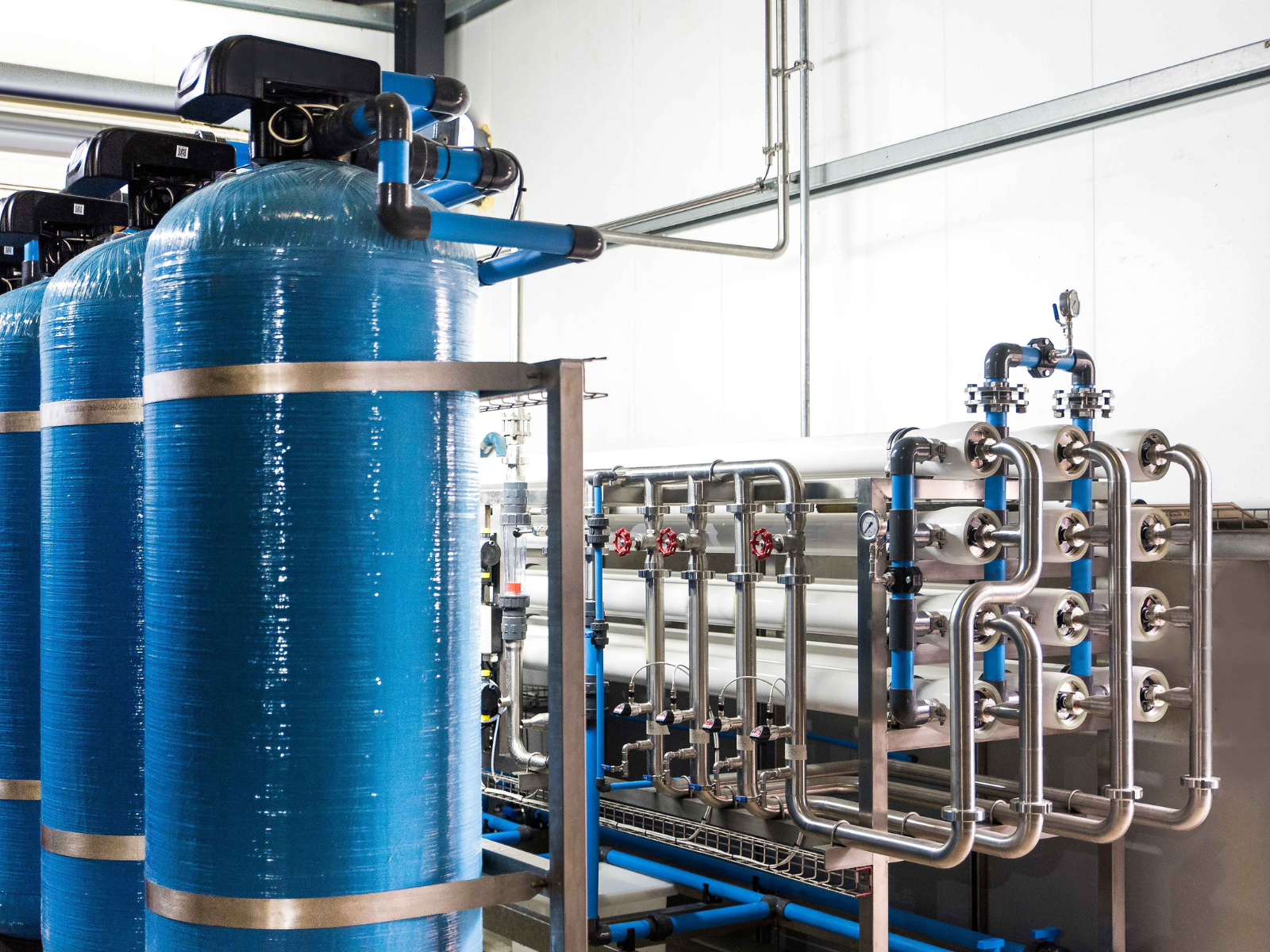
Since NuWater provides custom-designed and engineered solutions, the more information a client can share, the more precisely the company can design a plant that is truly fit for purpose.
- Will additional capacity be needed in the future?
- What is the intended use of the treated water?
- Could that use change in the coming years?
- Does the client have existing infrastructure in place?
- Are there specific regulatory requirements they must meet – such as those related to exported goods?
Clients sometimes have specific norms and standards that are either developed internally by their company or are unique to the industry in which they operate.
“Many of our customers want a containerised solution, but this is not the only option. Our plants can be built onto a frame. Containers are expensive and will drive up the cost of the end product,” maintains Billy James.
“Another cost saver could be to use existing infrastructure. For instance, many industrial companies can repurpose their existing tanks or use their own plumbers and piping teams. We are also brand agnostic and open to using various pump or electronics brands, provided they are high quality, readily available, and supported with reliable after-sales service. We also look at the application. There are many instances where cheaper PVC piping can be used instead of stainless steel piping. ”
However, James Morisse emphasises that NuWater will not compromise on the treatment membranes, as they are at the very core of the treatment process. If they fail, the entire plant could come to a sudden standstill.
“Over time, water treatment membranes naturally degrade, leading to reduced performance and efficiency. Recognising this, we take a forward-thinking approach by designing our treatment plants as if the membranes are already three years into their operational lifespan. This means the system is engineered to perform optimally even with aged membranes, allowing for consistent treatment quality over time. As a result, when the plant is first commissioned with new membranes, it operates with a built-in performance buffer. This not only extends the functional life of the membranes but also reduces the frequency of replacements, lowers operating costs, and ensures long-term reliability of the entire treatment system.”
Life time warranty for the process
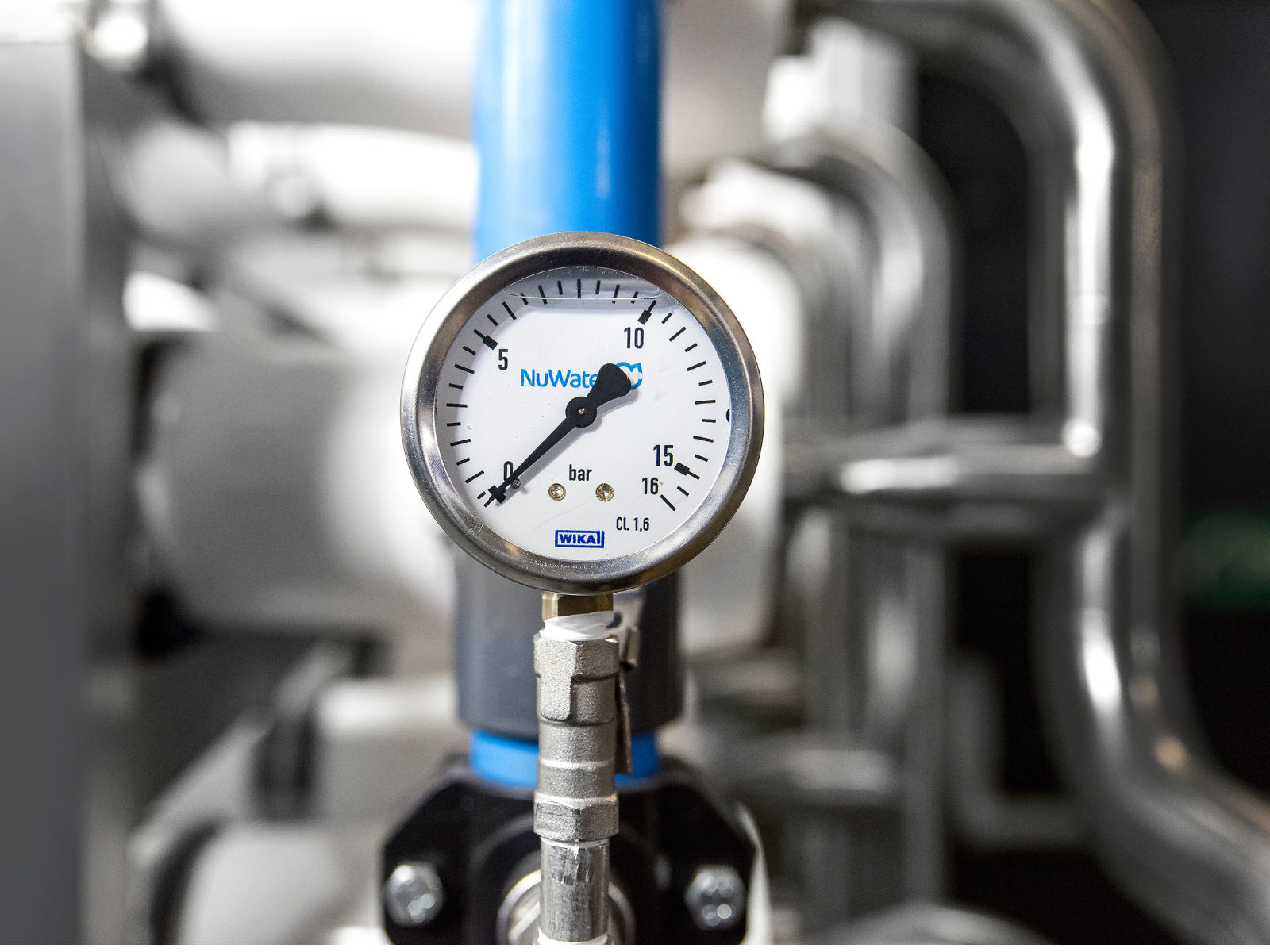
NuWater is so confident in its plant designs that it offers a lifetime process warranty—provided the plant is operated according to the owner’s manual, routine maintenance is performed, and the treatment process remains unchanged. This assurance is possible because NuWater maintains full control over every stage: from design and manufacturing to commissioning.










